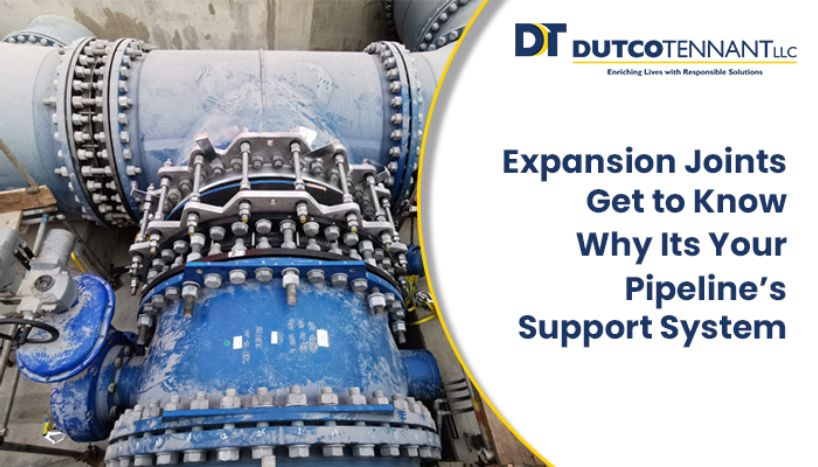
5 Ways Expansion Joints Makes Pipeline Operations Smooth
In the intricate web of plumbing systems, every component plays a crucial role in ensuring smooth and efficient operations. Among these components, plumbing expansion joints stand out as unsung heroes that often go unnoticed but play a vital role in maintaining pipeline integrity.
In this blog, we'll delve into the world of plumbing expansion joints, provide an overview of what they are, and explore how they make pipeline operations smoother and more reliable.
What Are Plumbing Expansion Joints?
Before we explore the benefits of plumbing expansion joints, let's briefly understand what they are. Plumbing expansion joints are flexible connectors used in piping systems. They are designed to accommodate various factors that can impact pipelines, ensuring their longevity and optimal performance.
1. Absorbing Thermal Expansion
One of the most significant challenges in plumbing systems is dealing with temperature fluctuations. As temperatures rise and fall, pipelines expand and contract accordingly.
If not addressed, this thermal expansion can lead to structural damage, leaks, and even burst pipes. This is where rubber expansion joints come into play. These flexible connectors absorb the stress caused by thermal expansion.
Hence, preventing potential damage to the pipeline and ensuring a longer service life for your plumbing system.
2. Vibration Dampening
Pipeline systems are often subjected to vibrations caused by various factors such as equipment operation or nearby traffic. Excessive vibrations can accelerate wear and tear on pipes and plumbing fittings, leading to leaks and costly repairs.
Plumbing expansion joints act as shock absorbers, dampening vibrations and protecting the entire system from damage. This not only extends the lifespan of the pipes but also reduces maintenance costs over time.
3. Compensation for Misalignment
In real-world plumbing scenarios, it's not uncommon for pipes to be slightly misaligned during installation or due to external factors. Misaligned pipes can cause stress and strain on the connections, resulting in leaks and reduced system efficiency.
Rubber expansion joints provide the necessary flexibility to accommodate these misalignments. This ensures a tight and secure connection that prevents leaks and maintains optimal flow.
4. Noise Reduction
Excessive noise in plumbing systems can be a nuisance, especially in commercial and industrial settings. The movement of fluids through pipes can generate vibrations and noise, which can disturb occupants or workers.
Rubber expansion joints help reduce noise by isolating vibrations and dampening sound, creating a quieter and more comfortable environment.
5. Preventing Corrosion
Corrosion is a common enemy of plumbing systems, as it can weaken pipes and lead to leaks. Plumbing expansion joints, when made from corrosion-resistant materials, provide an additional layer of protection against this threat.
By preventing direct contact between different metals or materials in the system, expansion joints help mitigate the risk of galvanic corrosion and extend the life of the plumbing components.
Conclusion
Expansion joints are often the unsung heroes that keep pipeline operations smooth and reliable. These flexible connectors, including rubber expansion joints and other plumbing fittings, play a crucial role in absorbing thermal expansion, and other movements.
By addressing these challenges, expansion joints ensure the longevity and efficiency of plumbing systems, saving both time and money in the long run. So, the next time you turn on the tap or flush the toilet, remember that expansion joints are silently working behind the scenes to make it all happen seamlessly.
If you are in search of any high-quality expansion joints for your pipelines then be sure to check out our range.
